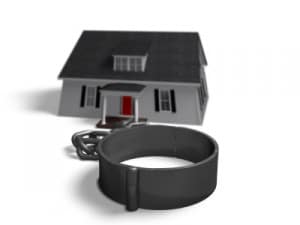If you’ve been struggling to keep up with mortgage payments for a while and simply can’t afford your home loan, walking away from your mortgage may be a last resort.
In the wake of the recession, millions of Americans have had to give up the American dream of living in their own house and have been forced into foreclosure or bankruptcy.
Others have voluntarily left their residences – often due to underwater homes, or properties where the borrower owes more on the mortgage than the home is worth.
Walking away from a mortgage can be an attractive option for those who simply can’t keep up with their payments. If you can afford payments but choose not to, it’s known as a “strategic default”.
Results of Fannie Mae’s National Housing Survey reveal that 27 percent of underwater homeowners say it’s okay to walk away from a mortgage if they were facing financial distress.
Is it the right strategy for you? Here are a few reasons you should consider strategic default, along with several reasons you shouldn’t’:
Reasons You Should Default on Your Mortgage:
Free up extra cash. Walking away from your mortgage means you simply don’t have to keep making your monthly mortgage payment any longer.
And since foreclosures in many states are taking a year or longer, you’ll have what’s known as “squatter’s rent.” That extra cash available each month to cover other expenses or even to pay down debt. In fact, there are seven things strategic defaulters do with the money they save.
No more maintenance expenses. If you are walking away from a mortgage on a second home or vacation rental, you won’t have to worry about paying utilities, homeowner’s association dues or even maintenance costs. You are basically freeing yourself of the responsibility of maintaining the property.
This doesn’t mean your actions might not be without consequence. A vacation company or homeowner’s association may still try to get you to pay. Nevertheless, by abandoning a property, you are effectively relieving yourself of this financial burden.
Prevent bankruptcy. If paying an expensive mortgage means you’ve been defaulting on other loans and can’t keep up with household expenses and other payments because of a lack of income, getting rid of the mortgage payment may be your only option for preventing bankruptcy.
Having more cash available means you could catch up on other payments and still stay in good standing with other creditors.
Reasons You Shouldn’t Default On Your Mortgage:
A drop in your credit score – your credit score can take a big hit from those missed payments. But the extent to which your credit will be impacted is a matter of some dispute.
According to the American Bankers Association, a strategic default/foreclosure can cost you between 100 to 400 points on your credit score. Foreclosures will stay on your credit report for seven years.
Meanwhile, Fair Isaac, the company that created the FICO score, says that a strategic default/foreclosure typically shaves roughly 150 points off a person’s FICO score. (FICO scores range from 300 to 850 points).
And experts from YouWalkAway.com, which helps people who are going through strategic default, say that it’s more common for clients to have a 100 point drop in their credit score, with the score often rebounding in less than two years.
Tax liability – even though you’ll be protected under the Mortgage Forgiveness Debt Relief Act of 2007 (which extends through 2012) from paying federal taxes after a foreclosure, you might still be responsible for paying state taxes. These are imposed on unpaid debts and can cost you more than you had planned.
You want to get a new mortgage within three years – if you want to get another mortgage within the next three years, you could be out of luck. Some lenders will be unlikely to sign off on that loan when they see a foreclosure or strategic default in your credit history.










